- Overview
- Types
- Symptoms
- Causes & Risks
- Tests & Diagnosis
- Treatment
- Living With
- Mobility & Assistive Devices
- Complications
- Caregiving & Support
- Appointment Prep
- View Full Guide
Baby Gear: The Big List of Stuff That Makes Parenting with MS Easier



Gearing Up for a Baby with MS
Parenting a new baby comes with a whole set of challenges. A chronic condition like multiple sclerosis (MS) only adds to the stress. Now you have to juggle your newborn's needs with your own tiredness, weakness, and mobility issues. How will you carry your baby or get them from the stroller into the car seat? Fortunately, baby gear manufacturers have designed products to make life a lot more manageable for parents with MS.
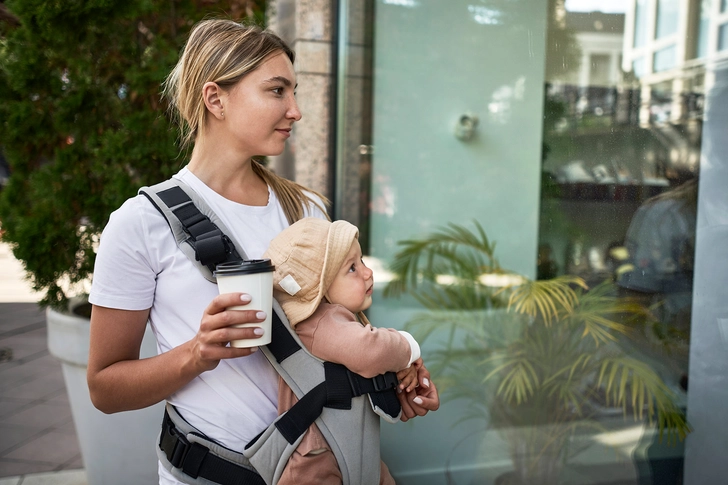
Multi-Position Baby Carrier
Typical baby carriers position your baby in front of you. But that extra weight on your chest could cause discomfort in your back and hips — areas that may already hurt because of MS. A multi-position baby carrier lets you hold your little one in a place that's most comfortable for you, whether it's your front, hip, or back. There are also belts that let your baby rest safely on your lap while you sit in a wheelchair.
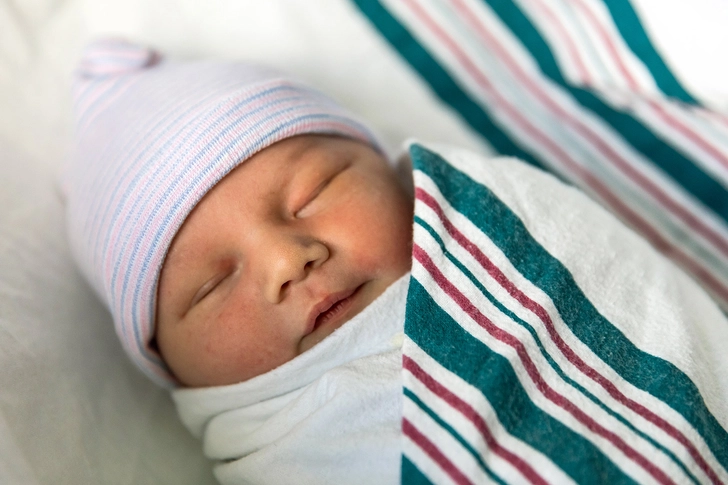
Velcro Swaddler
Swaddling — wrapping baby snugly in a blanket — calms fussy newborns and helps them get to sleep. Swaddles with a Velcro closure make it easier to wrap your baby and get a snug fit, without having to remember the several steps it can take to fold them up in a blanket. No matter which swaddle you use, always put your baby to sleep on their back and check often to make sure they don't roll over.
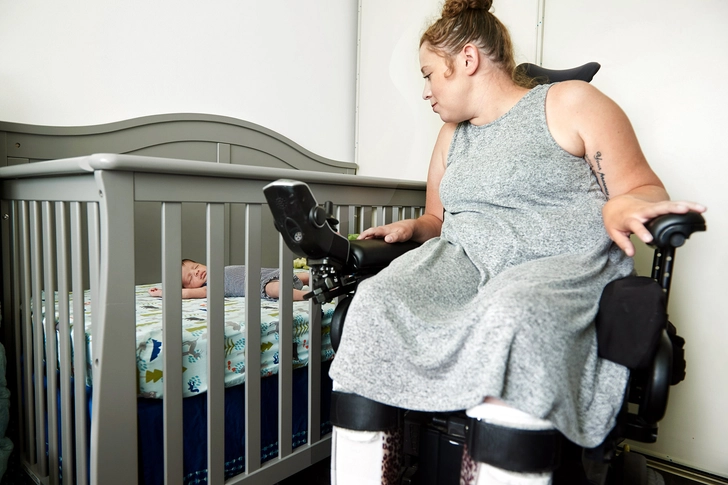
Wheelchair-Accessible Crib
The typical crib is too high to reach into if you use a wheelchair. But there are cribs made specifically for parents who need a lower entry point. Wheelchair-accessible cribs adjust to a height that's comfortable for you and come with features like easy-to-open side panels. If an accessible crib is too expensive, a travel crib is a more affordable option. It sits on the floor and the sides zip open so you don't have to reach or bend.
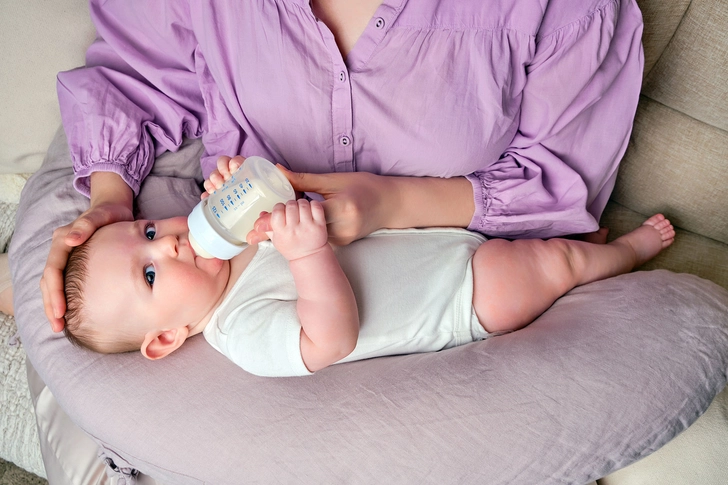
Two-Sided Nursing Pillow
Breastfeeding is good for your baby and you. Research finds that moms with MS who exclusively breastfeed have fewer relapses than those who don't. A two-sided pillow will keep you more comfortable while you nurse. It puts your baby into an ergonomic position that reduces strain on your shoulders and arms, and supports your back. The pillow is also useful for parents who bottle-feed.
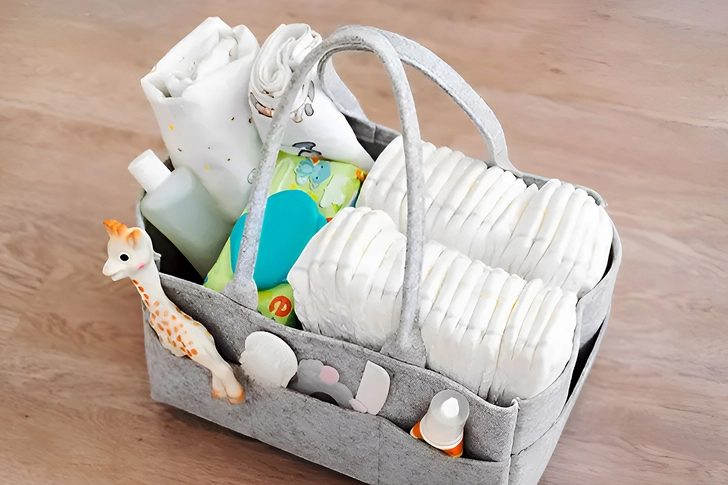
Diaper Caddy
Get a few of these handy organizers — one for each room, so you'll never have to travel far when your baby needs a diaper change. Fill each caddy with diapers, a change of clothes, wipes, and a changing pad. Diaper rash cream is another essential. If reduced mobility in your hands makes a jar or tube hard to open, buy one with a wider lid or use a diaper rash spray.
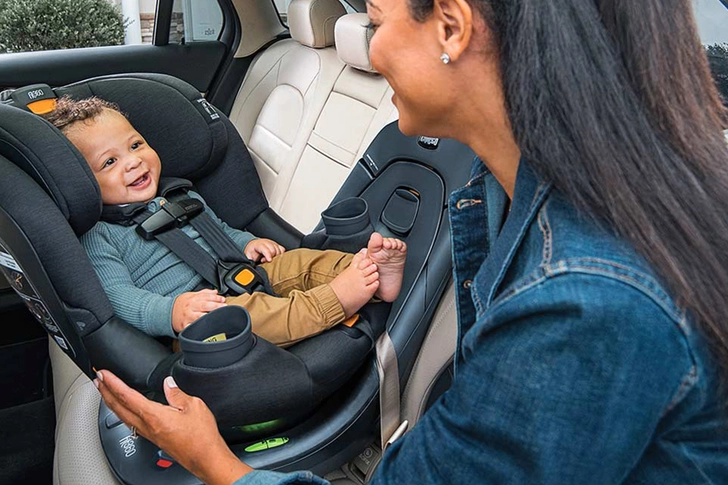
Swivel Car Seat
A car seat is a must-have. It will keep your child safe from birth until at least age 10. Buckling and unbuckling your baby may be more difficult if you have limited movement in your hands. Bending over the seat to lift your baby out can be hard on the arms and back. Some seats swivel toward you so you can get your child in and out of the car without straining. Also look for non-thread harnesses, which are easier to adjust.
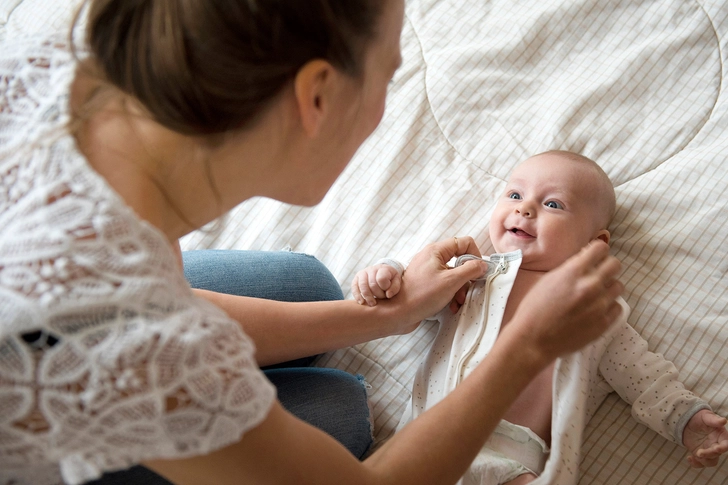
Baby Clothes with Magnetic Closures
A few brands have adapted their baby clothes for parents who don't want to fiddle with buttons. Magnets sewn into the fabric makes everything from onesies to jackets a snap to open and close. At around $40 for a set of PJs, magnetized clothes can be expensive. Zip-up enclosures are often more budget-friendly, and about as easy to put on and take off your baby.
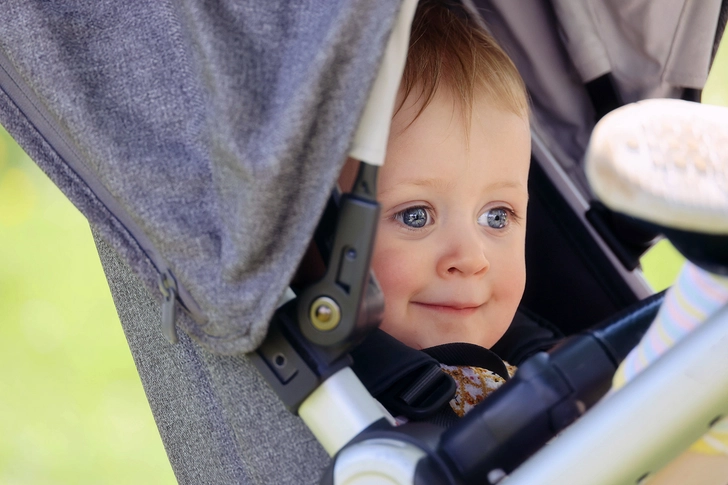
Easy-to-Use Stroller
A travel stroller is a lightweight alternative to a traditional stroller. Look for one that's compact and that folds with the touch of a button. Some strollers have magnetic harnesses to buckle your child. A stroller-car seat combo could save you money, and you can find ones with built-in wheels that fold from a stroller into a car seat. A stroller or car seat with a handle that lowers can be helpful if you use a wheelchair.
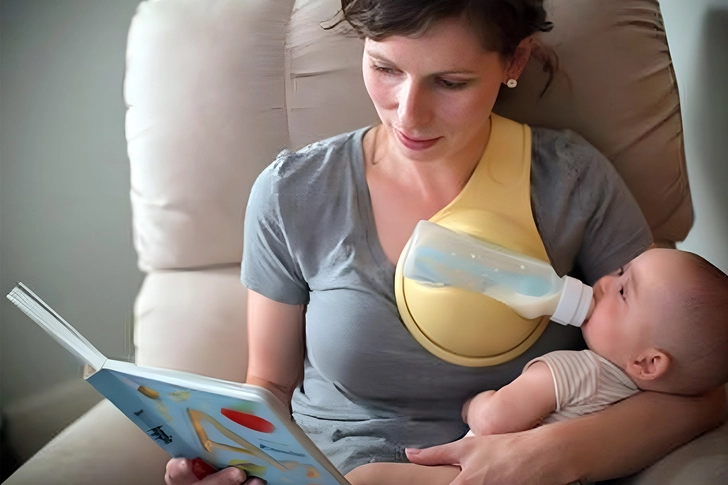
Hands-Free Baby Bottle
This bottle is useful for feeding babies 3 months and older when you have weakness in your hands and wrists. The bottle stands up and milk flows up through a tube attached to the nipple. Even though it lets babies feed themselves, you always want to stay with your child while they eat. For babies under 3 months, you might try a lightweight baby bottle that's easier for you to hold, or one that wraps around your shoulder.
BraunAbility: "Accessible Baby Products for Parents with Disabilities."
IMAGES PROVIDED BY:
- Stone/Getty Images
- DigitalVision/Getty Images
- Cavan/Getty Images
- Photodisc/Getty Images
- iStock/Getty Images
- Pampers/Procter & Gamble (P&G)
- Chicco USA
- Tetra Images/Getty Images
- iStock/Getty Images
- Cuddle Baby
Consumer Reports: "Choose the Right Car Seat for Your Child."
Frontiers in Neurology: "The Protective Role of Breastfeeding in Multiple Sclerosis: Latest Evidence and Practical Considerations."
Gertie Crib: "The Top Wheelchair Accessible Crib for Parents with Special Needs."
HealthyChildren.org: "Swaddling: Is It Safe for Your Baby?"
Mayo Clinic: "Multiple Sclerosis."
National Multiple Sclerosis Society: "5 Things to Know About the Postpartum Period and MS," "Pain and Itching."
Through the Looking Glass: "Nursing & Bottle Feeding Equipment."
UNM Health: "10 Helpful Products for Parents with Disabilities."
American Cancer Society: "ACS Patient Programs and Services."
Cancers: "Model of Social Support for Patients Treated for Cancer."
Cancer Research UK: "Coping with Womb Cancer."
Cancer Support Community: "Get Support."
ECANA: "We Are Survivors."
Frontiers in Oncology: "Perceived Social Support and Quality of Life in Endometrial Cancer Patients: A Longitudinal Study."
Healthy Women: "Living with Endometrial Cancer."
Journal of Comparative Effectiveness Research: "Study Protocol for the Social Interventions for Support During Treatment for Endometrial Cancer and Recurrence (SISTER) Study: A Community Engaged National Randomized Trial."
Journal of Gynecologic Oncology: "Psychiatric Comorbidities Among Endometrial Cancer Survivors in South Korea: A Nationwide Population-Based, Longitudinal Study."
National Cancer Institute: "Cancer Support Groups," "Social Support."
UW Medicine: "Could Isolation Hurt Black Women with Endometrial Cancer?" "Social Support Weighted in Endometrial Cancer Outcomes."